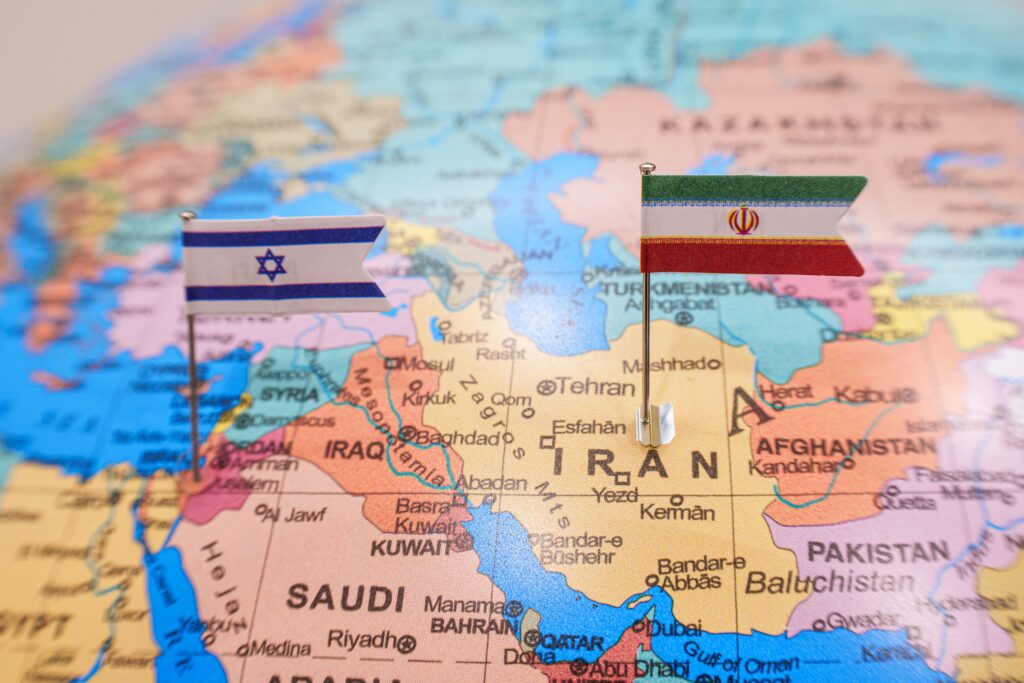IN THE MEDIA
Three reasons Israel decided to act against Iran now
June 20, 2025 | Allon Lee

Canberra Times – 20 June 2025
For decades Iran – the world’s leading state sponsor of terrorism – has insisted its nuclear program is for peaceful purposes.
But no one believes this – which is why the issue has been high on the world’s agenda for the past 30 years.
There are three factors underpinning Israel’s surprise decision to launch a full-scale attack this week against Iran’s nuclear program.
The first is the Trump Administration’s failure to make any serious progress toward a viable new nuclear deal with Iran over two months of talks.
The second is the International Atomic Energy Agency (IAEA) resolution this week finding that Iran was in serious breach of its obligations as a signatory to the Nuclear Non-proliferation Treaty.
IAEA reports say that Iran now possesses enough 60% enriched uranium to produce the cores of between nine and ten nuclear warheads in less than two weeks. Iran is the only non-nuclear weapon state to have ever enriched uranium to this level – an enrichment level with no legitimate civilian use.
Furthermore, the IAEA has uncovered evidence that Iran has conducted work on nuclear bomb triggers.
And the third is the ongoing war that was started by Iran’s terror proxy Hamas on October 7, 2023, when it slaughtered the most Jews in a single day since the Holocaust and which widened to include attacks against Israel by other Iranian proxies, including Hezbollah in Lebanon, the Houthis in Yemen and Iraqi and Syrian militias.
And this was then followed by Iran’s unprecedented decision to directly attack Israel, firing hundreds of missiles and explosive drones at Israel in April and October 2024.
These attacks exposed the existential threat to the Jewish state if a nuclear warhead on an Iranian missile managed to get through Israel’s defences.
In December 2001, former Iranian President Ali Rafsanjani – a supposed moderate – boasted that “when the Islamic world acquires atomic weapons, the strategy of the West will hit a dead-end since the use of a single atomic bomb has the power to destroy Israel completely, while it will only cause partial damage to the Islamic world.”
Many will blame the current crisis on President Trump’s decision during his first term to walk away from the 2015 nuclear deal negotiated by his immediate predecessor, Barack Obama.
But Trump’s description of that agreement as “the worst deal ever negotiated” for once was not hyperbole.
The 2015 Joint Comprehensive Plan of Action (JCPOA) amounted to little more than a verbal commitment by Iran to temporarily limit its enrichment of uranium – but not to stop researching and constructing the means to enrich it to higher levels much more quickly as soon as the deal ended.
The deal had absurdly short sunset clauses and a weak inspection and verification regime.
Moreover, Iran failed even to comply with many of the obligations in the deal, including to reveal past undisclosed research.
The death knell for the 2015 deal was the intel contained in the nuclear archive that Israeli agents stole from Tehran in 2018, later made public by Israeli PM Binyamin Netanyahu.
The archive was a smoking gun consisting of 110,000 documents, videos, photos, schematics, and internal correspondence proving that Iran’s nuclear program was never intended for peaceful purposes. Even keeping this archive was itself a violation of the JCPOA.
It would be a mistake to assume that this conflict is merely about Iran versus Israel. Israel successfully repelled Iran’s barrages last year with the assistance of Saudi Arabia and Jordan.
Indeed, critics of President Obama’s JCPOA deal with Iran quipped that it achieved the rare feat of uniting Israel and Sunni Arab states in opposition to it.
US diplomatic cables released by Wikileaks in 2010 revealed a paper trail of the leaders of Arab countries prodding America to act against Iran’s nuclear program.
Another serious risk posed by Iran possessing nuclear weapons is the inevitability of a regional nuclear arms race in the volatile Middle East. In 2018, Saudi Arabia’s Crown Prince Mohammed bin Sultan said, “Saudi Arabia does not want nuclear bombs. But, if Iran developed a nuclear bomb, we will follow suit.”
Recent events inevitably recall how on June 7, 1981, 14 fighter jets took off from Israel’s Etzion Airbase and headed north-east. Approximately 90 minutes later, Iraq’s Osirak nuclear reactor was no more.
Israel’s then Prime Minister Menachem Begin argued that the strike was a “pre-emptive act of self-defence” and totally justified because Iraqi dictator Saddam Hussein, who like the Iranian regime, openly called for Israel’s destruction, was developing nuclear weapons.
The world rounded on Israel. The UN Security Council passed Resolution 487 which “strongly condemn[ed]” Israel.
Nine years later, Hussein invaded neighbouring Kuwait. If he had had nuclear weapons, he would likely be there still. The earlier condemnation turned into a massive sigh of relief for Israel’s foresight.
Hopefully, this week’s attack by Israel can ensure the same positive outcome.





